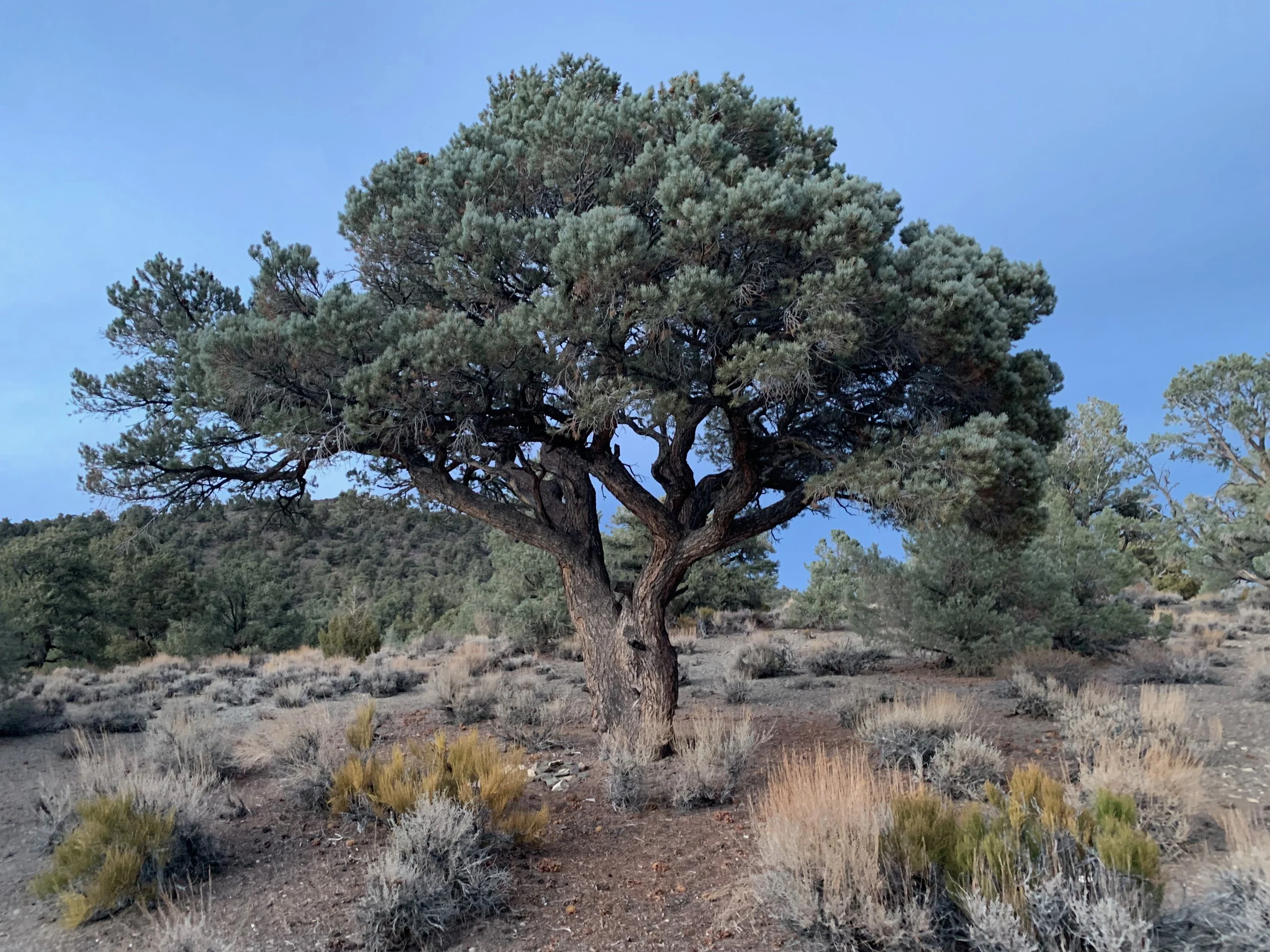Community and forest health intertwine in pinyon-juniper woodlands
Produced by Stanford Doerr School of Sustainability
Pinyon-juniper woodlands across the western U.S. have been weakened by higher temperatures, declining snowpack, insect outbreaks, and massive wildfires. Stanford researchers are working with tribal nations, government agencies, and colleagues at the University of California Berkeley to find solutions in the Eastern Sierra.
The Moral Ecology of a Forest
Caring for Trees in North America’s Changing Pinyon-Juniper Woodlands
Presentation by Paul Berne Burow for the Peabody Museum of Natural History at Yale University
How does environmental change impact the moral ecology of forests? And what do these changes mean for the cultural values of Indigenous and rural communities that rely on them? In the southwestern United States, Pinyon pine (Pinus monophylla) is threatened by drought, wildfire, and clear-cutting. These pine nut trees, also known as tubapi, are critically important for Indigenous peoples of the Great Basin and Colorado Plateau.
Paul Berne Burow discusses how Numu (Paiute) people care for the trees within the shifting ecology driven by land use practices and climate change in the Great Basin of California and Nevada. He explores what these changes mean for Pine Nut Nation–the complex of people, plants and animals tied to forestlands in the arid Southwest–and how this offers a model of effective collaboration and maintenance of cultural values to sustain life in the Anthropocene.
